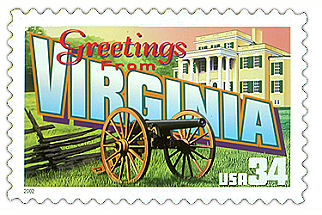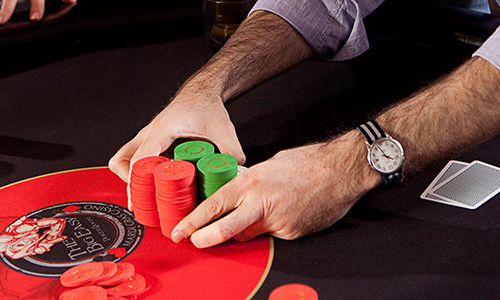Virginia Poker Skill Game Bill Passes Committee
A bill which, among other things, would legalize poker in Virginia by classifying it as a game of skill, overcame an early hurdle on Monday, as it passed out of a Senate committee by a thin 8-7 vote. The bill will now go to the originating body, the Senate, for the first of three readings.
 S 1400, introduced by Senator Louise Lucas just a couple weeks ago, was reported, or approved, by the Senate General Laws and Technology Committee. Eight Senators voted in the affirmative: George Barker, Marnie Locke, Adam Ebbin, Jennifer Wexton, Scott Surovell, Jeremy McPike, Monty Mason, and William DeSteph, Jr. Of those eight, all are Democrats except for DeSteph.
S 1400, introduced by Senator Louise Lucas just a couple weeks ago, was reported, or approved, by the Senate General Laws and Technology Committee. Eight Senators voted in the affirmative: George Barker, Marnie Locke, Adam Ebbin, Jennifer Wexton, Scott Surovell, Jeremy McPike, Monty Mason, and William DeSteph, Jr. Of those eight, all are Democrats except for DeSteph.
The seven “nays” came from: Jill Vogel, Richard Black, Frank Ruff, Bryce Reeves, David Suetterlein, Siobhan Dunnavant, and Glen Sturtevant, Jr. All of them are Republicans.
As Virginia law currently stands, poker has largely been interpreted as being “illegal” gambling, the definition of which is as follows:
“Illegal gambling” means the making, placing or receipt of any bet or wager in the Commonwealth of money or other thing of value, made in exchange for a chance to win a prize, stake or other consideration or thing of value, dependent upon the result of any game, contest or any other event the outcome of which is uncertain or a matter of chance, whether such game, contest or event occurs or is to occur inside or outside the limits of the Commonwealth.
There is definitely some vagueness to the above when it comes to poker, as poker is partially dependent on chance, but not entirely. So is the “outcome…a matter of chance?”
Note I am not addressing the “uncertain” part of the equation, as, in my humble opinion (read: not humble), it makes no sense. Nobody would argue that basketball isn’t a game of skill, but it is still a contest “the outcome of which is uncertain.” That’s the beauty of sports AND I WILL ARGUE THIS WITH MY WIFE UNTIL MY DYING BREATH: every game is different, we never know exactly what will happen.
Senator Lucas’ bill amends the gaming code to classify poker as a game of skill and therefore pull it out of the illegal gaming category. The single sentence that accomplishes this reads, “Poker games shall be deemed games of skill, and nothing in this subdivision shall be construed to make any such game illegal gambling.”
Now the bill has made it through committee (with a one tiny amendment that literally only changes one word), it goes back to the Senate. The Virginia constitution sets a process that requires three readings. With the first reading, the bill is printed on the Senate calendar or read by the clerk. For the second reading, the Senate Clerk reads the title aloud and Senators can propose amendments; if all goes well there (either no amendments are proposed or those that are are approved), it is on to a third reading. The third reading is when the entire Senate votes on the bill. If it passes a formal vote, it moves on to the House, where it goes through the same cycle.
Senator Lucas has been trying to legalize casino gambling – not just poker – in Virginia for several years, having introduced ten bills that never made it through committee. She and Senator Surovell, who voted for the bill, contributed an op-ed to the Richmond Times-Dispatch in November, explaining their reasoning for wanting legalized casino gambling in Virginia.
At the time, the MGM National Harbor casino was getting ready to open in Maryland, just across the border from Virginia. The Senators outlined the financial boost the property is expected to have in Maryland:
The MGM Grand is projected to generate $40 million to $45 million in tax revenue for Prince George’s County and more than $340 million per year for the Maryland state budget from the 61 percent tax on slot machine revenue and 21 percent tax on table revenue — revenues MGM committed to Maryland’s public schools during the bidding process.
They also said that it is estimated that about half of the casino’s business is expected to come from Virginians. The Virginia lottery estimated that it would lose several million dollars in profit per year because of Virginians taking their gambling dollars elsewhere. Casinos would help keep many of these dollars in-state as well as add jobs to the economy, the Senators wrote.
Note the legalization of poker the bill proposes is for brick-and-mortar poker, not online poker. In their op-ed, the Senators don’t specifically mention online poker, but they do present statistics supporting the popularity of fantasy sports as well as a 2015 Virginia lottery survey in which 44 percent of respondents “said they would wager in-person or online if a full-service casino opened in the Commonwealth of Virginia.”
No date has been set yet for the bill’s first reading.



















COMMENTS